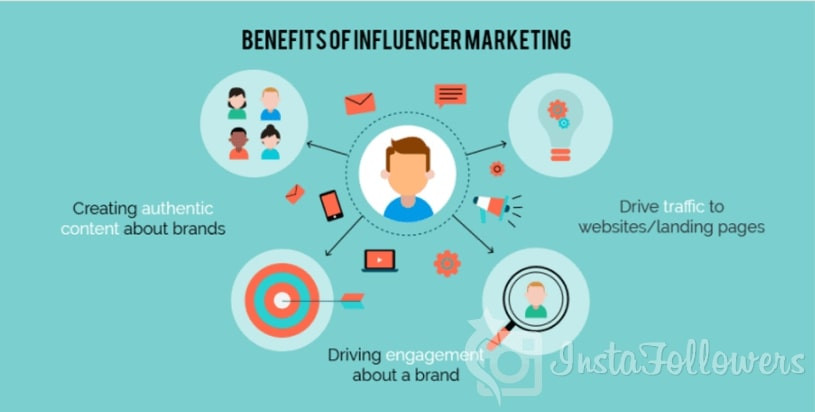What Is Influencer Marketing?
In today's digital age, consumers are bombarded with countless marketing messages every day. Traditional advertising methods are becoming increasingly less effective, and brands are struggling to cut through the noise and reach their target audience. This is where influencer marketing steps in as a powerful tool to connect with potential customers through trusted online personalities.
What is influencer marketing and how does it work?
Influencer marketing is a strategic marketing approach that leverages the power of social media influencers to promote a brand's message or product. Influencers are individuals who have built a dedicated audience and established credibility within a specific niche or industry. Here's a breakdown of how influencer marketing works:
Identify Relevant Influencers:
The first step involves identifying influencers who resonate with your brand and target audience. Consider factors like the influencer's niche, follower demographics, engagement rates, and overall brand alignment.Establish Partnerships:
Once you've identified potential influencers, reach out and establish a partnership. This can involve collaborating on sponsored content, product placements, affiliate marketing programs, or even co-creating content.Content Creation:
Influencers will create content that promotes your brand, following the agreed-upon campaign strategy. This content could be social media posts, blog articles, videos, or live streams, all tailored to the influencer's style and audience.Audience Engagement:
The influencer leverages their platform to share the created content, sparking conversation and engagement with their audience. This can involve encouraging likes, comments, shares, or even driving traffic to your website or landing page.Track and Measure Results:
It's crucial to track the performance of your influencer marketing campaign. Use analytics tools to measure metrics like brand awareness, engagement rates, website traffic, and conversions to assess the campaign's effectiveness.
By partnering with trusted influencers, brands can leverage their established audience trust and credibility to reach a wider audience and generate genuine interest in their products or services.
Is influencer marketing effective?
Influencer marketing can be a highly effective marketing strategy when implemented correctly. Here's a look at some key benefits:
- Increased Brand Awareness:
Influencer marketing allows you to reach a wider audience through the influencer's established follower base. - Enhanced Credibility:
Consumers are more likely to trust recommendations from someone they perceive as an authority figure rather than traditional advertising. - Targeted Audience Reach:
By partnering with niche-specific influencers, you can target your ideal customer base more effectively. - Authentic Content:
Influencer-generated content often feels more genuine and relatable compared to traditional marketing messages. - Improved Engagement:
Influencers are skilled at creating engaging content that sparks conversations and drives audience interaction.
However, it's important to remember that influencer marketing isn't a guaranteed success formula. Carefully vetting influencers, ensuring content authenticity, and setting realistic expectations are all crucial for maximizing your campaign's effectiveness.
Limitations of influencer marketing
While influencer marketing offers numerous advantages, it also has limitations to consider:
Cost:
Partnering with established influencers can be expensive, especially those with large followings.Finding the Right Fit:
Identifying influencers who genuinely align with your brand and target audience is crucial. A mismatch can lead to inauthentic content that resonates poorly with the target audience.Measuring ROI:
Accurately measuring the return on investment (ROI) for influencer marketing campaigns can be challenging, as multiple factors can influence consumer behavior.Fraudulent Followers:
Some influencers may have inflated follower counts or use bots to artificially boost their engagement metrics.Limited Control:
You relinquish some creative control over the content when working with influencers. It's essential to establish clear guidelines while allowing for the influencer's unique voice and style to shine through.
Despite these limitations, influencer marketing remains a powerful tool when implemented strategically. Understanding both the benefits and drawbacks allows you to make informed decisions and develop effective campaigns.
FAQs
What is the difference between influencer marketing and affiliate marketing?
Influencer marketing focuses on leveraging an influencer's social media presence and credibility to promote a brand or product. Affiliate marketing involves promoting a brand's products through various channels (including social media) and earning a commission for any resulting sales. Influencers can participate in affiliate marketing programs, but the two strategies are not mutually exclusive.
How much do influencers charge?
Influencer fees can vary greatly depending on factors like follower count, engagement rates, niche, and the scope of the campaign. Some


